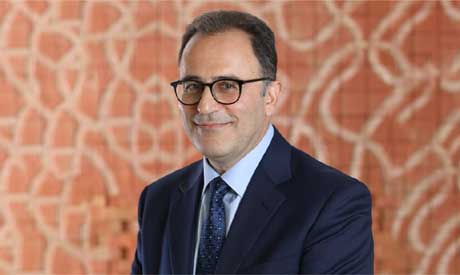
Ahmad Dallal, the AUC's 13 president (Photo courtesy of Georgetown University)
The Board of Trustees of The American University in Cairo (AUC) announced on Tuesday the appointment of Ahmad S. Dallal as AUC’s 13th president, succeeding the outgoing president Francis Ricciardone.
Dallal, who is an accomplished academic leader and renowned scholar with U.S. and regional higher education expertise, currently serves as dean of Georgetown University in Qatar, the AUC said in a statement.
He previously served as provost at The American University of Beirut (AUB) from 2009 to 2015.
Dallal has taught at AUB, Stanford University, Yale University, Smith College and Georgetown University, where he also served as chair of the Department of Arabic and Islamic Studies, the statement added.
In making the announcement, Mark Turnage (ALU ’82), AUC alumnus and chair of the Board of Trustees, who was a member of the search committee, said: “We are pleased that Ahmad has agreed to serve as AUC’s next president.”
“AUC is a remarkable institution at a point of inflection in its history, having achieved tremendous success in its first 101 years and now ready to chart a path for its second century. Dr. Dallal's academic and administrative acumen, inclusive leadership style and a deep sense of purpose will serve to propel AUC to even greater heights as it navigates an increasingly changing and complex higher education landscape,” Turnage added.
With several decades of teaching, research and leadership at top universities in the United States, Dallal is a "seasoned" expert on US-style American liberal arts universities and how they operate. Coupled with that is his extensive experience in the Middle East at both the American University of Beirut and Georgetown University in Qatar, according to Turnage.
Dallal, on his part, said “I am honored to join a vibrant and intellectually rich community at AUC. The University serves an important mission at a consequential moment in history and in a country and region that play a critical role on the global stage. I believe deeply that education is the engine of advancement for societies and that institutions like AUC are connectors in a world in which our futures are intertwined, as we have all witnessed firsthand through the pandemic.”
The AUC's statement said that the search for the 13th president began in early fall, following President Francis Ricciardone's announcement that he will step down at the end of the academic year in June 2021. A Presidential Search Committee, chaired by AUC Trustee Tarek Masoud, and consisting of trustees and AUC faculty representatives, was formed. The international search to find AUC’s next president included several rounds of wide-ranging consultations with faculty, students, staff and administrators.
Dallal earned his bachelor’s degree in mechanical engineering from AUB and his MA, MPhil and PhD in Islamic studies from Columbia University, according to the statement.
Dallal has written and lectured widely on learning in medieval and early modern Islamic societies, the development of traditional and exact Islamic sciences, medieval Islamic thought, the early-modern evolution of Islamic revivalism and intellectual movements, Islamic law, and the causes and consequences of the September 11 attacks.
Dallal, the statement added, has written dozens of articles, book chapters and publications, as well as several books. He is the author of An Islamic Response to Greek Astronomy: Kitab Ta‘dil
Hay’at al-Aflak of Sadr al-Shari‘a (1995); Islam, Science, and the Challenge of History (2012); The Political Theology of ISIS: Prophets, Messiahs & the “Extinction of the Grayzone” (2017); and Islam without Europe: Traditions of Reform in Eighteenth-Century Islamic Thought (2018).
“Dr. Dallal has spent much of his life studying how Middle Eastern intellectuals have grappled with decline and how to reverse it. That he would cap his career as the leader of one of the region's principal engines of development and innovation thus borders on the poetic,” said Masoud.
“I have no doubt that under his leadership, AUC will write itself ever more prominently into the unfolding narrative of resurgent Middle Eastern dynamism and progress,” Masoud added.
Short link: